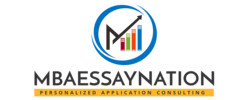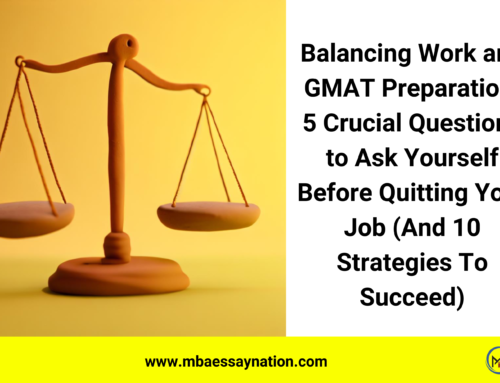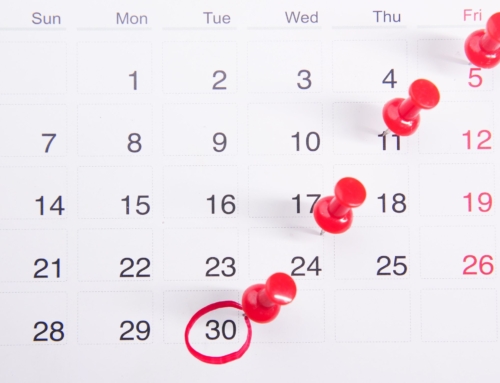Manage stress with these 5 tips when you prepare for your MBA interview
When applying to business schools, aspirants spend a lot of time on their applications and preparation for their MBA interviews. From preparing for a good GMAT score to writing strong, effective essays. With the bulk of their efforts directed at submitting applications on time, most applicants are unable to allow enough time to prepare for their interviews. Applicants also spend considerable time waiting for an interview call – most would rationalize that without a confirmed interview, it’s futile to prepare for one.
That’s a big mistake.
Between receiving an interview call and the actual interview date generally lies a really short time period – anywhere from 2 to 10 days.
I found myself in a similar situation when after submitting my application, I spent the next two weeks fretting over whether I’d get an interview call. When I finally got an interview invite, my joy was short-lived because I realized I had exactly 5 days to prepare for the interview. The first two days, I went through intense stress trying to remember the stories I wanted to include in my responses. I soon found out that the right stories were only one part of the…well, story. Framing my responses in ways that would bring out the significance of my achievements or experiences formed the other half of the struggle to prepare for the interview. I found myself rambling when practicing even seemingly straightforward questions like “Tell us about yourself” or “Why do you want to do an MBA?”
When I started to coach MBA candidates to prepare for their interviews, I found most of them similarly stressed out. Long-winded answers, sometimes bearing no clear connection to the questions being asked, were common. In their stress, many would even forget about important achievements they had included in their applications.
So, how do you prepare for your MBA interview without feeling stressed out?
Start early
It’s the simplest and also the most difficult to do. But really, it’s all about conscious self-discipline. Allocate enough time to prepare for your interview. Nothing beats stress more than knowing you have ample time to prepare. You breathe easy. And you think better.
Review Your Application
Your application should be a good starting point when preparing for your interviews. Know your application like the back of your hand. Remember why you’ve included specific information and their details. Applicants often forget particulars mentioned in their applications, leading to awkward conversations during interviews, often putting their credibility at stake.
Make A List of Potential Questions Based on Your Professional and Personal Journey So Far
Identifying the best narratives is something you would have done as part of your essay writing process. In addition to success stories, focus on finding more examples of instances where you failed, dealt with conflicts, or managed difficult situations. Behavioral questions that dwell on how you handle not-so-favorable situations help Adcom understand various facets of your leadership potential.
Practice, Practice, Practice. Regularly.
Practice will help you not just identify which narratives to highlight but also how to describe those. The more you practice, the more you’ll know which are the essential elements to include in your answer. Distilling each response to its essence would help you prepare responses that are to the point, and therefore, powerful.
Keep some time aside daily to practice. This would also leave you feeling less overwhelmed, you’d be able to bring in more clarity and become more creative in crafting your responses.
Seek Constructive Feedback
Find a friend or a mentor who can give feedback, without which it can become difficult to gauge the effectiveness of your answers. Practice and feedback together will help you become convinced about your responses. And conviction is crucial for you to feel and consequently, project confidence during your interviews.

We hope you find these steps useful when preparing for your interviews. You can also download our infographics on the 5 tips, a handy checklist you can refer to not just for your MBA interviews but also for your job interviews. For more such tips, check out our blog here.








Very well articulated Deepthi. I am sure MBA aspirants will get benefitted immensely from this initiative. All the very best. Keep up the good work 👍
Thank you Jai for your wonderful feedback!
[…] Previous […]